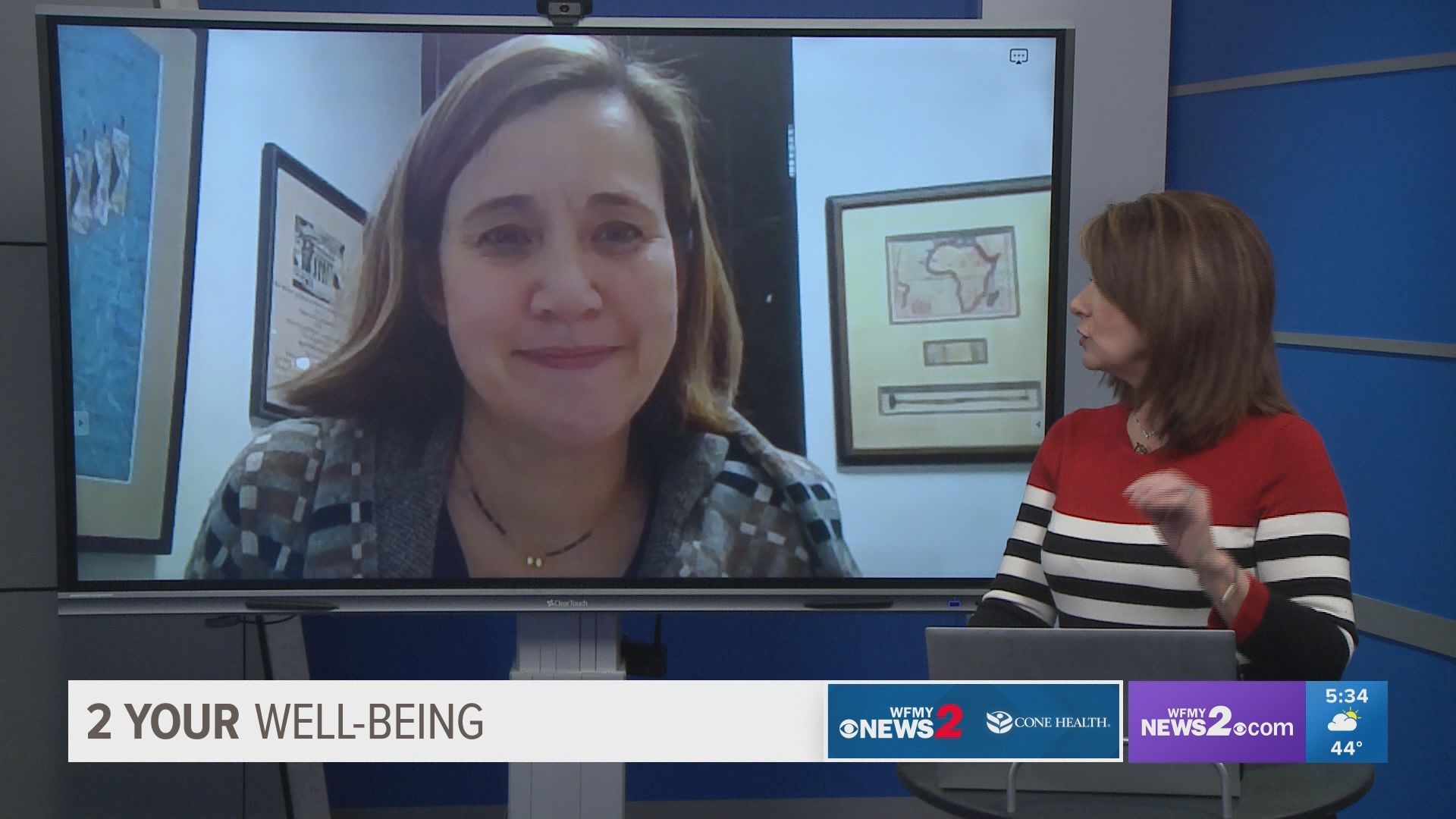GREENSBORO, N.C. — We just switched over into a new year. We're still dealing with an issue all too familiar: COVID-19.
North Carolina continues to set records for cases and infection rates as omicron surges throughout our communities.
On Monday's 2 Your Well-Being Dr. Cynthia Snider, an infectious disease expert from Cone Health, put the numbers in context and explained what the next few months may look like.
A look at the metrics
Cone Health is seeing hospitalizations comparable to last winter's big surge. The hospital system reported 289 patients in their care Monday with COVID-19. Dr. Snider said about 75% of those patients are unvaccinated.
Dr. Snider said Cone Health expects to set new records within the next few weeks.
"It kind of takes my breath away," Dr. Snider said. "It is startling."
She said the most recent positivity rates were about 30%. That means one out of every three people getting tested comes back positive.
Dr. Snider expects numbers to peak in the next week or so before we start to see any improvement.
Best safety practices
Cone Health continues to recommend boosters for all eligible people. That includes people who got the Pfizer or Moderna vaccine at least five months ago and those who received the Johnson and Johnson shot at least two months ago.
Everyone 12 years or older can get a booster shot of the Pfizer vaccine. Dr. Snider said boosters offer the best protection against omicron.
Dr. Snider suggested people switch away from wearing traditional cloth masks. She said using multi-layered masks or KN95 masks will give people the best protection.
Understanding new guidance
The CDC recently updated its isolation and quarantine guidance. The agency said people who test positive can leave isolation after five full days if they remain asymptomatic or their symptoms are improving.
Dr. Snider said there are two big things to keep in mind with the new guidelines. People who leave isolation after five days must wear a mask around other people. She said you remain contagious until after the 10th day, so it's important to mask up around other people.
Dr. Snider said it's also important to be sure your symptoms are improving.
"In a perfect world, I'd say no symptoms, but you'd definitely need to have no fever for 24 hours and not taking anything to stop that fever and feeling considerably better," Dr. Snider said.
Dr. Snider said as long as you feel like you can complete your daily activities, it's probably okay for you to go back to work.



